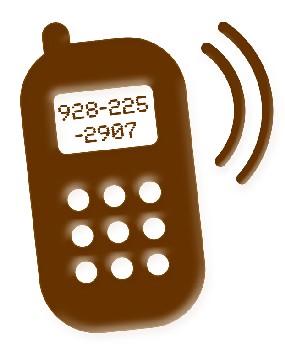 |
| (Photo by Duke Energy) |
Right now our electrical grid is dumb. No question about it. As has been pointed out many times, the only way your utility knows if there has been an electrical outage is if you call them. That is dumb. Also, the utility does not know the demand on any particular transformer or substation until it becomes overloaded and maxes out. That makes them over-invest in infrastructure and create inefficiencies throughout the system. Making these parts of the grid smarter will yield tremendous benefits. I am an unabashed supporter of implementing the smart grid between the transformer, substation, distribution and transmission systems to allow for smarter balancing of the system, for detecting system problems and for helping to manage the system overall.
But over and over the story I read about is that the smart grid will be deployed at the consumer level so that customers can have their various appliances managed to the benefit of the grid operator (Baltimore Sun, Business Week) . For example, during times of high demand, your smart meter would turn your air conditioner up a degree or two. It would also have your dishwasher only run late at night when demand is low. Supposedly one would get a favorable rate or other incentive to do so.
I do not think this will happen.
Here's why. Americans like two things more than saving a little money: simplicity and control. Look at cell phone plans. Originally they differentiated between calls on nights and weekends and calls during working hours. Texting was priced by the unit. Web-based services were based on usage. But more and more people have gravitated to the unlimited options. Many of these people would probably save money on another plan, but they would rather know how much the are going to pay than worry about an anomaly that would cost them more one month. In fact, most people will remember that one month when it cost $250 and not realize that averaging their bills out over the year would cost less than $129 per month. No, they would rather not worry about the unexpected surprise.
Likewise with pay-per-view. Most people subscribe to cable services based on their maximum viewing preferences. They would rather have access to all the stations they "might" watch than have to think about paying a premium once in a while--even if it costs them more in the long run.
And so it will be with smart meters. People will prefer plans with set rates or monthly amounts than variable. The more complicated the pricing, the fewer people will want it--even if they are told it will save them money. No one will go along with complicated, demand-driven pricing. And no one will want the utility controlling when they can run their dishwasher or what temperature they set their thermostat. No way!
So utilities can install millions of smart meters in people's homes, but they won't get the benefit they think they will. It may still be a good idea, because the grid needs to be able to communicate with itself. It will help with reliability, forecasting and data. But it won't result in big changes in how consumers consume electricity. They'll still opt for a simple, one-price system.






No comments:
Post a Comment